From the London-based Schubert Ensemble:
A few days ago poor Simon (Blendis), our violinist, fell over and fractured his left arm just a few hours before he was due to fly to Holland. Thankfully it’s not a bad fracture, and he should be playing again in four weeks, but we are incredibly grateful to Wouter Vossen, the violinist from the Storioni Piano Trio, for stepping in at incredibly short notice and rescuing our Dutch tour, which finished last night. Sadly we’ve had to cancel most of our engagements for the rest of this month, including our recording of Chausson and Saint Saens for Chandos Records, which we hope to do later this year instead. Fortunately our concert at Milton Place next Wednesday will go ahead, and we’d like to say an enormous ‘thank you’ to renowned violinist Krysia Osostowicz for stepping in to play in that concert. We hope to see you there!
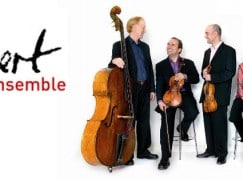
Ever since Simon Rattle took up the baton in Berlin at the turn of the century, a Praetorian Guard formed around him. At the first hint of sceptical opinion, these self-appointed defenders went into attack mode, lashing out at errant critics and generally drumming up a state of tension around the conductor’s easygoing personality.
Known as Rattlesnakes, led by a member of the Berlin Phil brass section and an English sports journalist, they may have done more harm than good to their man by making reasoned discussion of his activities well-nigh impossible. In their eyes, the world was either pro-Rattle or anti.
No other conductor has such a guard. Neither Gergiev, with his dubious political affinities, not Thielemann, with his even more questional political opinions, has a rapid-response unit to fight their critics. Both Gergiev and Thielemann – and their supporters – are content to let their work speak for itself. Why Rattle has attracted such defenders is a mystery.
Now some of these voices have been raised again to counter the occasional quizzical eyebrow that has risen at Rattle’ds accession to the London Symphony Orchestra. No one, least of all this writer, is in any doubt that the appointment has been overwhelmingly welcomed, by the players, the media and the British music establishment.
All the more reason, then, to pierce the curtain of hagiolatry with an alternative opinion. The discussion is good for the orchestra, good for music and ultimately good for Rattle himself. As one of the sceptics, this writer is fully aware of Rattle’s achievements and has published a balanced appreciation elsewhere. We at Slipped Disc very much hope that his tenure with the LSO will yield a new concert hall and great success for the orchestra. But not to warn of possible pitfalls ahead would be a denigration of our duty and a denial of democracy. Let the Rattlesnakes hiss and strike. The sceptics must be heard.
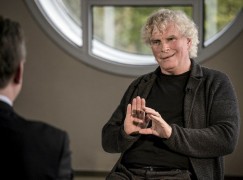
Cathy Graham of the British Council has reported for us in the past on attempts to bring music back to Afghan children. Her latest communication is particularly salutary:
Dear colleagues and friends,
I’m writing to let you know about the showing of a film by Polly Watkins about Dr Ahmad Sarmast and the Afghanistan National Institute of Music. Many of you will remember the group of students from the school who were in London a year ago, and who performed at the South Bank Centre’s Alchemy Festival, and many of you will already know about the inspirational work of ANIM.
The film is called Dr Ahmad’s Music School, and there will be a free screening in the Kamram Djam Lecture Theatreat SOAS (http://www.soas.ac.uk/visitors/location/), on Monday 16th March, starting at 8.15pm. I enclose a flyer.

The film showing has been partly triggered by a very sad event. On 11th December 2014 Dr Sarmast was seriously injured in a bomb attack on the French Institute in Kabul, where children from the Lycée Français were performing a play, with music provided by some of ANIM’s students. None of the children was physically injured. Dr Sarmast, however, was sitting in front of the suicide bomber. He sustained shrapnel wounds to the head and loss of hearing, though he is making a good recovery and his hearing is returning. In an email of 11th January 2015 he wrote:
In spite of everything, I am more resolved than ever to continue in the important work of making sure music, arts, and culture are available to all Afghan children and youth. It is ever more clear to me the importance of education, and especially music education, in our society to combat extremism and give hope to vulnerable children.
I hope you will be able to join Professor John Baily (Afghanistan Music Unit, Goldsmiths) for this event.
With best wishes
Cathy
Marc Adam will leave Nice in October after the city refused him a contract renewal. The highly experienced director has been there just three years. More from our copains at resmusica.
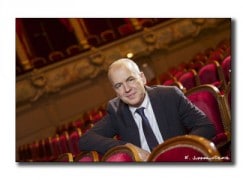
Marc was head of Stadttheater Bern, 2007-11. Before that he ran Lübeck and Rouen.
Brilliant initiative from concertmaster Holly Mulcahy. Read here.
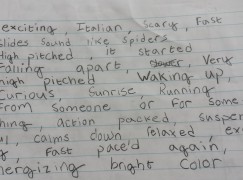
Wire magazine has news of a scheme by which La Scala’s notoriously secretive and clannish backstage becomes an access area for social media, aimed at under-30s. This could breach generations of darkness. Read extract here.
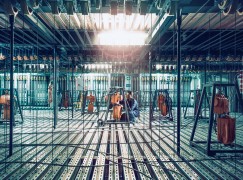
Was this a political decision? Read this statement by the Boston-based Estonian-Armenian composer, Jonas Tarm:
It has been an honor and pleasure to rehearse my music with the New York Youth Symphony and conductor Joshua Gersen. These fellow young musicians are some of the most artistically advanced and mature musicians I have been able to work with.
I am disappointed and confused by the decision of the president of the board and the executive director of the NYYS to cancel my Carnegie Hall debut. This composition, titled “Marsh u Nebuttya” (Ukrainian for “March to Oblivion”), is devoted to the victims who have suffered from cruelty and hatred of war, totalitarianism, polarizing nationalism — in the past and today.
To emphasize that point in musical form, I briefly incorporate historical themes from the Soviet era and from the World War II Germany. The Ukrainian Soviet Socialist Republic (UkSSR) national anthem lasts about 45 seconds and the German Horst Wessel Lied also lasts about 45 seconds in the nine-minute work. This piece was not meant to provoke but to evoke.

This is the program note I provided to the NYYS in September, 2014:
PROGRAM NOTE
Марш y Hебуття [Marsh u Nebuttya]
Dedicated to the victims of hunger and fire
Completed August 1st, 2014.
Between the conception
And the creation
Between the emotion
And the response
Falls the Shadow
—T.S. Eliot
NYYS had no complaints regarding the program note being too short or insufficient until six days before the Carnegie Hall concert.
The NYYS has had the score to “Marsh u Nebuttya” since September. They’ve rehearsed this piece for over three months; and I attended several of those rehearsals. They performed the piece on Feb. 22, 2015 at the United Palace Theater in New York. On March 2nd, just days before its Carnegie Hall performance, the executive director of the NYYS told me that these themes, these instrumental quotes, are potentially offensive. Concerns about the content in this work were never mentioned to me until March 2nd.
The old joke about how do you get to Carnegie Hall – you practice. Apparently you also have to self-censor. I’m disappointed that this work will no longer have the ability to speak for itself.
I’d like to sincerely thank the people who have supported me and asked my work be heard.
— Jonas Tarm
March 4, 2015
And here’s the orchestra’s rapid response:
NYYS Statement on Removal of Commissioned Orchestral Work
The New York Youth Symphony’s decision to remove a commissioned work from Sunday’s performance was not a decision taken lightly. It was a highly unusual step for us—one which was taken thoughtfully, but firmly, as soon as we learned the piece incorporated significant portions of music written by others that we determined were problematic for a student orchestra such as ours to be asked to perform without prior knowledge or discussion.
The first time the composer revealed the source of his music was on March 2, in response to our inquiry. We were told that of the three sources that he used, one is the Horst-Wessel-Lied, the anthem of the Nazi Party from 1930-1945, which is illegal in Germany and Austria. When asked to explain the context and meaning of the piece, which would justify his use of this source, he refused.
This was his obligation to our orchestra as a commissioned artist and particularly important given the fact he was working with students, ages 12-22. Had the composer revealed the sources of his piece and the context under which they were used upon submission of the final commission in September 2014, the piece and the notes could have served as an important teaching moment for our students. However, without this information, and given the lack of transparency and lack of parental consent to engage with this music, we could not continue to feature his work on the program.
Again, if the composer had been forthright with us from the start, this situation would not have transpired. He was chosen last spring for the commission from among a strong group of candidates by an impartial panel of seven composers and music educators. The new piece he created in response to receiving the commission received its first hearing when it was given to the orchestra to rehearse in December.
We believe deeply in a free creative process. But along with freedom comes responsibility, even more so when young people are involved. We continue to be committed to champion new young composers through our ground-breaking First Music composition program, which has commissioned over 137 composers since 1984. We are proud that First Music commission winners have been recognized by the Rome Prize, the Pulitzer Prize, and Guggenheim Fellowship.
Our mission at the NYYS is to educate and inspire young musicians, composers, and conductors. We also encourage creativity within a culture of mutual respect and honesty. This situation, while unfortunate in so many ways, has taught us to remain true to our values as we serve the best interests of all our students.
All of us at the NYYS are deeply disappointed that this decision was necessary knowing how much time and effort the students put into preparing the piece for performance. We thank them for their wonderful contributions to making the NYYS such a special place, and we appreciate the ongoing interest in the success of our performers and the NYYS from all of our alumni, supporters, and the wider music community.
At a time when the future of BBC orchestra is under scrutiny, the following notice has appeared on one of the BBC’s public-engagement websites:
The Orchestra
| BBC Three
Are you a talented classical musician looking for your next big career opportunity?
Do you have the skill, passion, and drive to be part of a groundbreaking new orchestra?
Do you want to shake up stereotypes and help bring classical music to a new generation?
Are you a big personality with something to say on-and-off stage?
We’re developing an exciting new series for BBC Three and we’re looking for performers in the following areas to make up a brand new chamber orchestra:
• Strings
• Brass
• Woodwind
• Percussion
If you are interested or would like to find out more please contact us.
The Orchestra is produced for the BBC by Buccaneer Media.
To apply
Age limit: You must be 18 years of age and over.
Please include your name, current age, what instrument you play and your music qualifications along with why you would like to be considered for the programme.
Email: music@buccaneermedia.com
Closing date: 24 April 2015
The information you provide will be collected and compiled by a third party (as set out in the show information), for the purposes of assessing whether you are a suitable contributor for this show. It might also be used for developing and producing the show and any associated website content, programme, publicity, promotion and/or distribution materials. Please note that the third party may share your details with the BBC if it is necessary for the purposes of the production. They will not store or use your details for any other purpose unless they obtain your consent to do so. For more information about the use of your personal data by a specific production company, please contact them directly. For more information about how the BBC uses your data, please see ourPrivacy and Cookies Policy.
Does the BBC’s right hand know what the left is doing?









